GROWTH IN THE FACE OF HEADWINDS : WHAT TO DO
Population aging, the end of transformative innovations, and environmental pressures are among the headwinds that, according to many, will sharply curtail the possibilities for future growth and development. How strong are these headwinds? What can we do about them? Can the world's economies grow strongly despite the headwinds?
2016
Panelists:
Professor Steven Davis (University of Chicago)
Professor Hoon Hian Teck (Singapore Management University)
Professor Alan Krueger (Princeton University)
Professor Edward Lazear (Stanford University)
Chair:
Professor Bernard Yeung (National University of Singapore)
By: Professor Edward Lazear (Stanford)
The US Presidential Election and Implications for the World Economy
Download Slides
Panelists and Chair
-
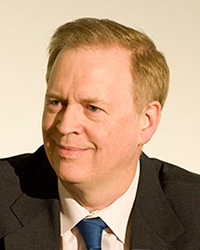
Professor Steven Davis
The University of Chicago, William H. Abbott Professor of International Business and Economics
Steven Davis studies business dynamics, worker mobility, job loss, labor market institutions, economic fluctuations, public policy and other topics. His research appears in the American Economic Review, Journal of Political Economy, Quarterly Journal of Economics and other leading scholarly journals. He is a former editor of the American Economic Journal: Macroeconomics and an elected fellow of the Society of Labor Economists. He is also a research associate of the National Bureau of Economic Research, senior academic fellow with the Asian Bureau of Finance and Economics Research, advisor to the U.S. Congressional Budget Office, and visiting scholar and consultant, respectively, with the Federal Reserve Banks of Atlanta and Chicago.
Davis is known for his influential work using longitudinal data on firms and establishments to explore job creation and destruction dynamics and to study their relationship to economic performance. He is also a co-creator of the Economic Policy Uncertainty Indices and the DHI Hiring Indicators, and he co-organizes the Asian Monetary Policy Forum, held annually in Singapore. Davis has received research grants from the Alfred P. Sloan Foundation, Ewing Marion Kauffmann Foundation, John D. and Catherine T. MacArthur Foundation, and other organizations, including several grants from the U.S. National Science Foundation. In 2013, he received the Addington Prize in Measurement, awarded by the Fraser Institute for Public Policy, for his research on “Measuring Economic Policy Uncertainty.”
His teaching experience includes Ph.D. courses in macroeconomics and labor economics at the University of Chicago, the Massachusetts Institute of Technology, and the University of Maryland; MBA courses in macroeconomics, money and banking, business strategy, and financial institutions for Chicago Booth; and executive MBA courses in macroeconomics for Chicago Booth in Barcelona, London, and Singapore. Davis has also taught undergraduate courses in microeconomics, econometrics, and money and banking at Brown University and the Massachusetts Institute of Technology.
Davis has written for the Atlantic, Bloomberg View, Financial Times, Forbes, Wall Street Journal and other popular media, and his research has been cited in many prominent newspapers and magazines around the world. He has made television appearances on Channel News Asia, CNBC, CNN, Fox News, NBC Network News, and the U.S. Public Broadcasting System, among others. -
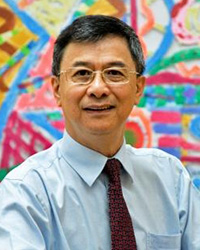
Professor Hoon Hian Teck
Singapore Management University, Professor of Economics and Associate Dean (Faculty, Research)
Hoon Hian Teck is Associate Dean, School of Economics at the Singapore Management University. His major fields of interest are Macroeconomics, International Economics, Development and Growth. His papers have appeared in the American Economic Review, International Economic Journal, European Economic Review, Journal of Economic Theory, among many others and he is the author of several books. Professor Hoon's work has been influential in explaining the dynamics of an economy's response to various economic shocks. He is a co-editor of the Singapore Economic Review.
-
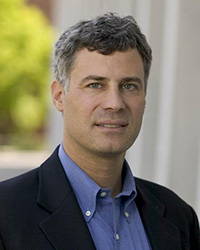
Professor Alan Krueger
Princeton University, Bendheim Professor of Economics and Public Affairs
Alan Krueger has published widely on the economics of education, terrorism, unemployment, labor demand, income distribution, social insurance, labor market regulation and environmental economics. Since 1987 he has held a joint appointment in the Economics Department and Woodrow Wilson School at Princeton University. He is the founding Director of the Princeton University Survey Research Center.
Alan Krueger served as chairman of President Barack Obama’s Council of Economic Advisers from 2011 to 2013, and was a member of the President’s cabinet. He also served as Assistant Secretary for Economic Policy and Chief Economist of the U.S. Treasury in 2009 and 2010.
He is the author of “What Makes A Terrorist: Economics and the Roots of Terrorism and Education Matters: A Selection of Essays on Education”, co-author of “Myth and Measurement: The New Economics of the Minimum Wage”, and co-author of “Inequality in America: What Role for Human Capital Policies?” He has been a member of the Board of Directors of the Russell Sage Foundation, MacArthur Foundation, and the American Institutes for Research, as well as a member of the editorial board of Science (2001-09), editor of the Journal of Economic Perspectives (1996-2002) and co-editor of the Journal of the European Economic Association (2003-05).
He has been a member of the Executive Committee of the American Economic Association (2005-07) and International Economic Association, and Chief Economist for the National Council on Economic Education (2003-09).
Professor Krueger was named a Sloan Fellow in Economics in 1992 and an NBER Olin Fellow in 1989-90. He was elected a Fellow of the Econometric Society in 1996, and a fellow of the Society of Labor Economists in 2005. He was awarded the Kershaw Prize by the Association for Public Policy and Management in 1997 (for distinguished contributions to public policy analysis by someone under the age of 40) and the Mahalanobis Memorial Medal by the Indian Econometric Society in 2001. In 2002 Professor Krueger was elected a fellow of the American Academy of Arts & Sciences, and in 2003 he was elected a fellow of the American Academy of Political and Social Science. He was awarded the IZA Prize in Labor Economics with David Card in 2006. From 2000 to 2006 he was a regular contributor to the "Economic Scene" column in the New York Times. He received a B.S. degree (with honors) from Cornell University's School of Industrial & Labor Relations in 1983, an A.M. in Economics from Harvard University in 1985, and a Ph.D. in Economics from Harvard University in 1987. -
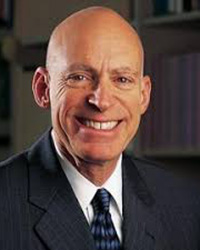
Professor Edward Lazear
Stanford University, Jack Steele Parker Professor of Human Resources Management and Economics, Morris Arnold and Nona Jean Cox Senior Fellow, Hoover Institution and Senior Fellow (by courtesy), Stanford Institute for Economic Policy Research
Edward P. Lazear the Morris A. and Nona Jean Cox Senior Fellow at the Hoover Institution since 1985, is also the Jack Steele Parker Professor of Human Resources Management and Economics at Stanford University's Graduate School of Business, where he has taught since 1992. Professor Lazear taught previously at the University of Chicago's Economics Department and Graduate School of Business, where he was the Brown Professor of Urban and Labor Economics.
Lazear served as Chairman of the President's Council of Economic Advisers and served at the White House from 2006 to 2009. In his position as the chief economic advisor to the President, he advised on a broad range of matters that involve both the macroeconomy and microeconomic issues.
Founding Editor of the Journal of Labor Economics, Lazear is a Fellow of the American Academy of Arts and Sciences, the American Association for the Advancement of Sciences, the Econometric Society, and the Society of Labor Economists of which he was president. Lazear is a Visiting Distinguished Fellow of the Becker Friedman Institute at the University of Chicago and is heads the economics initiative at the George W. Bush Institute. He is also a Research Associate of the National Bureau of Economic Research, where he co-chairs the program in personnel economics.
Professor Lazear has written extensively on labor markets and personnel issues; microeconomic theory; issues involving worker compensation and effects on productivity; entrepreneurship; governmental policies on discrimination, affirmative action, and comparable worth; educational policy; unemployment; culture, language, and diversity issues; the doctrine of employment at will; distribution of income within the household; pricing and marketing policies; and other issues involving labor markets and the macroeconomy. He has over 100 published academic articles, he is a frequent contributor to the popular press, and has written or edited twelve books.
Professor Lazear's book Personnel Economics (MIT Press, 1995) expands on his 1993 Wicksell Lectures. In 1998, he received the Melamed Prize, which cited this book as the best research by a business school professor anywhere in the world during the previous two years. He received the Distinguished Teaching Award from Stanford University's Graduate School of Business as well as the PhD Faculty Distinguished Service Award.
Lazear won the IZA Prize in Labor Economics, which is given to the person viewed to have made the most significant contributions to labor economics in the world. This was primarily for his work in personnel economics. In June 2006, Lazear was awarded the Jacob Mincer Prize given by the Society of Labor Economics for lifetime contributions to the field. He holds four honorary doctorates.
In addition to his former duties in Washington, Professor Lazear has been an advisor to the governments of Czechoslovakia, Romania, Russia, Ukraine, and Georgia.
Born in 1948, Professor Lazear grew up in Los Altos, California. He received his AB and AM degrees from the University of California at Los Angeles, and his PhD from Harvard University. -
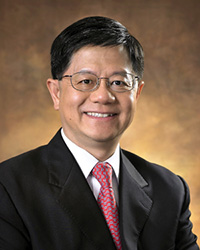
Professor Bernard Yeung (Chair)
President, Asia Bureau of Finance and Economic Research
Dean and Stephen Riady Distinguished Professor in Finance and Strategic Management, National University of SingaporeBernard Yeung is the Dean and Stephen Riady Distinguished Professor in Finance and Strategic Management at National University of Singapore (NUS) Business School.Before joining NUS in June 2008, he was the Abraham Krasnoff Professor in Global Business, Economics, and Management at New York University (NYU) Stern School of Business. He has also served as the Director of the NYU China House, the honorary co-chair of the Strategy Department of the Peking University Guanghua School of Management, and Advisory Professor at the East China Normal University. From 1988 to 1999, he taught at the University of Michigan and at the University of Alberta from 1983 to 1988.
Professor Yeung’s research work covers topics in finance, economics, and management. His articles have appeared in journals in the fields of economics, finance, strategic management, international business, and accounting, as well as in mass media such as The Financial Times and The Wall Street Journal.
He has also won several scholarly honours and awards for academic excellence, including the Irwin Outstanding Educator Award (2013) from the Business Policy and Strategy (BPS) division of the Academy of Management; the Excellence in Teaching Award (Executive Education) by Stern School of Business at NYU and Teacher Excellence Award (doctoral programmes) by University of Michigan Business School.
Professor Yeung has served on various committees and international advisory boards. Currently, he is a member of the Social Science Research Council (SSRC) in Singapore. He was a member of the Economic Strategies Committee in Singapore (2009) and also a member of the Financial Research Council of the Monetary Authority of Singapore.
Professor Yeung currently also sits on the 3rd Advisory Board of the Antai College of Economics and Management at Shanghai Jiao Tong University, the Research Advisory Council of the Centre for Advanced Financial Research and Learning (CAFRAL), Reserve Bank of India, a member of the Economics and Management School of Wuhan University Advisory Council and on the International Academic Panel (IAP) at Singapore Institute of Management (SIM).
He was the Dean Director on the Graduate Management Admission Council (GMAC) Board, and a member Asia Advisory Task force (AATF) of the Association to Advance Collegiate Schools of Business (AACSB). He is also an elected Fellow of the Academy of International Business (AIB).
Professor Yeung received his Bachelor of Arts in Economics and Mathematics from the University of Western Ontario and his MBA and PhD degrees from the Graduate School of Business at the University of Chicago.
- 1
Keynote Speaker
The US Presidential Election and Implications for the World Economy
Currently, policymakers around the world are concerned about a slowdown in China and other developed countries that may have ripple effects throughout the world. Central banks have taken a number of measures to offset the risks, but not all are coordinated. All of these developments are further complicated by a changing political structure in the United States that will come about as a result of the impending presidential election. The talk will address these developments the steps can be taken to ensure that the world economy continues to grow.
-

Professor Edward Lazear
Stanford University, Jack Steele Parker Professor of Human Resources Management
and Economics, Morris Arnold and Nona Jean Cox Senior Fellow, Hoover Institution
Senior Fellow (by courtesy), Stanford Institute for Economic Policy ResearchEdward P. Lazear the Morris A. and Nona Jean Cox Senior Fellow at the Hoover Institution since 1985, is also the Jack Steele Parker Professor of Human Resources Management and Economics at Stanford University's Graduate School of Business, where he has taught since 1992. Professor Lazear taught previously at the University of Chicago's Economics Department and Graduate School of Business, where he was the Brown Professor of Urban and Labor Economics.
Lazear served as Chairman of the President's Council of Economic Advisers and served at the White House from 2006 to 2009. In his position as the chief economic advisor to the President, he advised on a broad range of matters that involve both the macroeconomy and microeconomic issues.
Founding Editor of the Journal of Labor Economics, Lazear is a Fellow of the American Academy of Arts and Sciences, the American Association for the Advancement of Sciences, the Econometric Society, and the Society of Labor Economists of which he was president. Lazear is a Visiting Distinguished Fellow of the Becker Friedman Institute at the University of Chicago and is heads the economics initiative at the George W. Bush Institute. He is also a Research Associate of the National Bureau of Economic Research, where he co-chairs the program in personnel economics.
Professor Lazear has written extensively on labor markets and personnel issues; microeconomic theory; issues involving worker compensation and effects on productivity; entrepreneurship; governmental policies on discrimination, affirmative action, and comparable worth; educational policy; unemployment; culture, language, and diversity issues; the doctrine of employment at will; distribution of income within the household; pricing and marketing policies; and other issues involving labor markets and the macroeconomy. He has over 100 published academic articles, he is a frequent contributor to the popular press, and has written or edited twelve books.
Professor Lazear's book Personnel Economics (MIT Press, 1995) expands on his 1993 Wicksell Lectures. In 1998, he received the Melamed Prize, which cited this book as the best research by a business school professor anywhere in the world during the previous two years. He received the Distinguished Teaching Award from Stanford University's Graduate School of Business as well as the PhD Faculty Distinguished Service Award.
Lazear won the IZA Prize in Labor Economics, which is given to the person viewed to have made the most significant contributions to labor economics in the world. This was primarily for his work in personnel economics. In June 2006, Lazear was awarded the Jacob Mincer Prize given by the Society of Labor Economics for lifetime contributions to the field. He holds four honorary doctorates.
In addition to his former duties in Washington, Professor Lazear has been an advisor to the governments of Czechoslovakia, Romania, Russia, Ukraine, and Georgia.
Born in 1948, Professor Lazear grew up in Los Altos, California. He received his AB and AM degrees from the University of California at Los Angeles, and his PhD from Harvard University.
- 1

